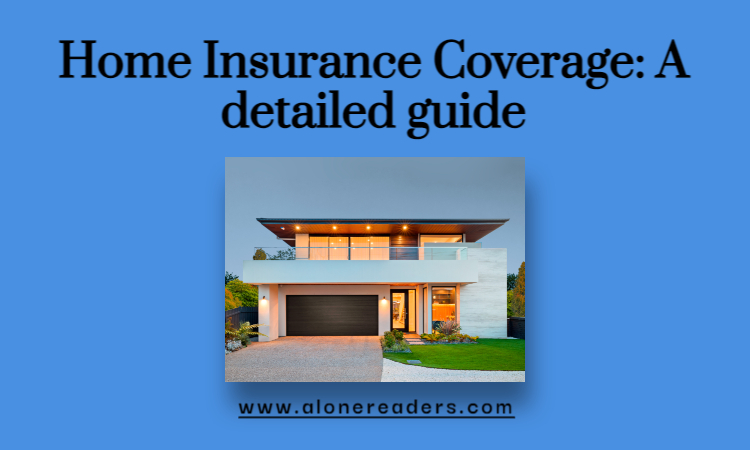
It's essential to have home insurance if you own a home. Protecting you, your residence, and its contents from loss are the goal of having home insurance. Your belongings, while you travel, are probably covered by your home insurance, but it may also include gaps that leave you underinsured.
A home insurance policy, also known as house insurance or homeowner's insurance, is a legal agreement between you and your insurer that commits your insurer to protect you from the various financial risks associated with owning a home in exchange for regular premium payments (typically made monthly or annually).
Yet, a lot of homeowners have a mortgage on their homes, and mortgage lenders typically stipulate that you maintain insurance on the property.
Although a home insurance policy’s condition will vary based on the provider, typical plans will include
Your home insurance is primarily intended to safeguard your residence, which is often referred to as the actual physical construction of your home. On your property, this also applies to outbuildings like a shed or a detached garage. Hence, if your home is damaged, say by a fire or explosion, your home insurance policy can assist cover the cost of repairing or rebuilding the building.
Up to a certain amount, the liability portion of your home insurance policy covers costs associated with third-party physical injury or property damage claims. This means that your house insurance can pay for related expenses, such as legal fees and awarded damages if a guest sues you after slipping and falling on your property. Additionally, your policy may also provide coverage for accidents that happen away from your home.
Your personal things are covered by this section of your home insurance policy, which is also referred to as contents insurance. If your belongings are lost or damaged as a result of an insured occurrence, you will be reimbursed for the cost of repairing or replacing them. This can apply to gadgets, clothing, furniture, and other objects, and the coverage may even extend to items you bring on trips (e.g., if your laptop is stolen from your car).
Your home insurance supports your coverage for additional living expenses. Your insurance company will contribute toward the price of your temporary housing if an insured incident (such as a fire) renders your home uninhabitable.
Protection for additional living expenses can also function as a safeguard for rental revenue. Your insurance policy can pay the fair rental value up until it's safe to move back in if you rent out a piece of your property and your tenant is unable to live there due to an insured incident.
Most commonly insured perils
That are often not covered by home insurance include the following:
You can choose to include a home insurance endorsement as an extra benefit in your policy (for an additional cost, of course). Although the types of endorsements provided can vary depending on the provider, here are a few well-known ones you can take into consideration.
An insurance deductible is the amount of money that you agree to pay out-of-pocket before your insurer pays the remaining balance.
A deductible is not necessary for all home insurance claims. When it comes to a significant loss, insurers could potentially waive your deductible.
Setting a greater deductible lowers your home insurance premiums because you are assuming more risk. But remember that you'll need to have this cash on hand in case something happens.
A disappearing deductible endorsement is another option provided by some insurers. Each year you go without filing a claim with this add-on, your deductible will drop (or maybe even be waived).
Here is a brief description of the numerous home insurance plan options available to you.
Here's a short overview of the factors that will affect the cost of your home insurance.
Residence factors
Policyholder factors
Policy coverage factors
Industry factors
Instead of completely canceling your home insurance if you're not happy with your existing insurer, you might wish to switch providers
Ensure that the beginning and end dates of your new and old policies coincide. You don't want to leave your property uninsured, not only because coverage gaps can drive up your future house insurance prices.
Moreover, confirm that you feel confident paying any fines because early cancellation may result in termination fees. You won't be penalized for a non-renewal if you wait until the conclusion of your policy's term.
A home is one of the largest investments you will ever make, so you'll want to protect it from the dangers of loss and damage, this is where home insurance comes in. Home insurance helps to protect you, your house, and your belongings from harm.